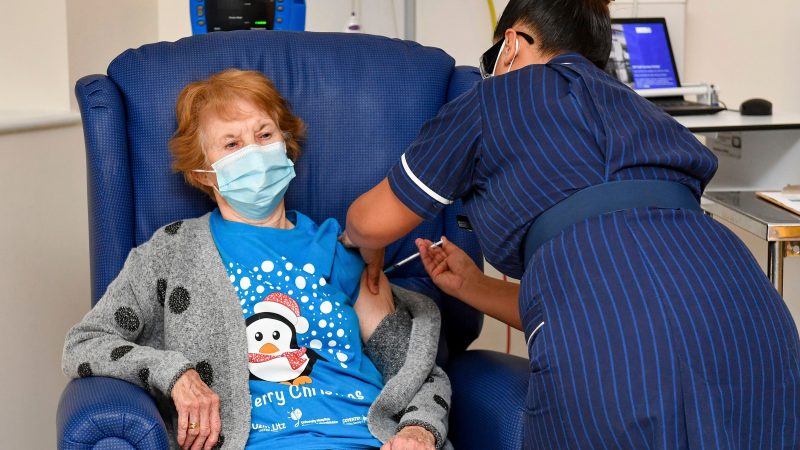
The Royal College of Nursing has officially launched its industrial action ballot in protest over the government’s latest pay award and NHS understaffing, representing the college’s first UK-wide strike ballot in its 106-year history.
In a message to nurses as the ballot opened today, RCN general secretary and chief executive Pat Cullen described the vote as a “once-in-a-generation chance to improve your pay and combat staff shortages that are putting patients at risk”.
“Governments have repeatedly neglected the NHS and the value of nursing. We can change this if together we say enough is enough,” she said. Cullen added that “record numbers” of staff feel that there is “no alternative but to quit”, meaning that “patients pay a heavy price, and that “we are doing this for them too”.
300,000 RCN members can take part in the ballot, which has been instigated following the government’s decision in July to award most NHS staff a 5% pay rise.
Ministers have claimed that the pay offer put forward by the government would lead to frontline personnel receiving a salary increase of at least £1,400. The RCN has argued that nurses should get a pay rise of 5% above inflation.
Cullen has said that nurses will still provide critical care if the strike goes ahead. “Nurses will do nothing to add to the risk that patients are facing every single day as a consequence of not having those nurses in the system to look after them,” she told BBC Radio 4’s Today programme on Thursday.
“I had a privilege to lead the first nurses’ strike in Northern Ireland for 103 years. That was done very safely, very effectively and totally professionally, and that put no patient at further risk.
“We had very clear protocols about organising it. There is no thing in our profession where we down tools and walk off wards or leave our patients in the community. We continue to provide critical services throughout any strike.”
The RCN ballot is due to close on November 2nd. Other groups workers within the health service, including junior doctors and physiotherapists, are also threatening to go on strike over pay and understaffing of the NHS.
Analysis from consultancy firm London Economics published today, and highlighted by the college, showed that nurses’ pay decreased by nearly twice as much as the pay of all private sector employees between 2011 and 2021. Analysts found that nurses’ pay dropped by 6% in real terms over the decade.
A survey of NHS staff recently found that some nurses are not eating at work in order to feed and clothe their children. More than a quarter (27%) of trusts already operate food banks for staff, and another 19% plan to open one.
Two-thirds (68%) of trusts reported that its workers are leaving for better terms and conditions elsewhere and that this is having a “significant or severe impact” and exacerbating existing recruitment and retention problems.
Nearly two thirds of the British public support nurses taking strike action, according to a recent YouGov poll. The online poll of just under 1,800 UK voters in September saw 65% vote to support nursing strike action. 75% said there are not enough nursing staff employed in the NHS for safe care.




More from LabourList
Government abandons plans to delay 30 local elections in England
‘The cost of living crisis is still Britain’s defining political challenge’
‘Nurses are finally getting the recognition they deserve’